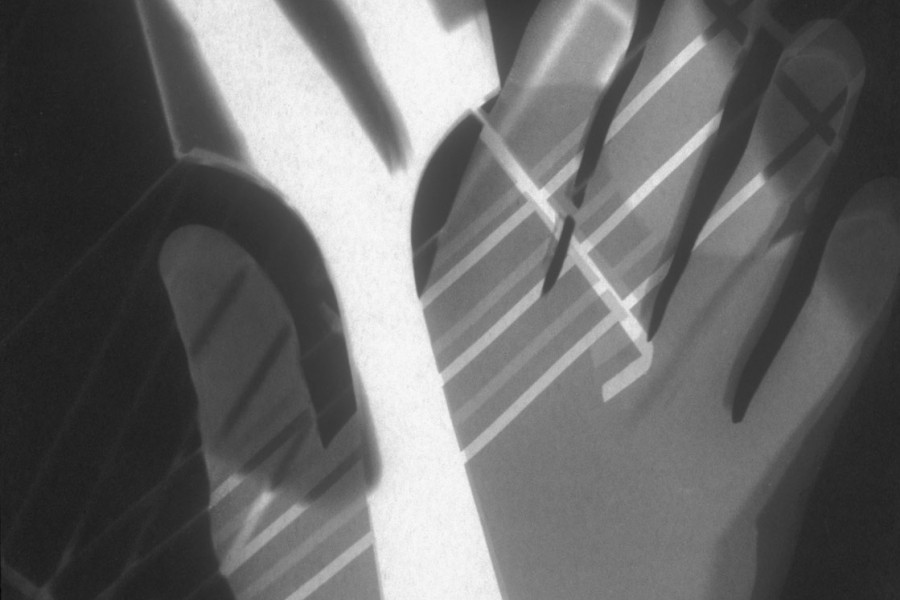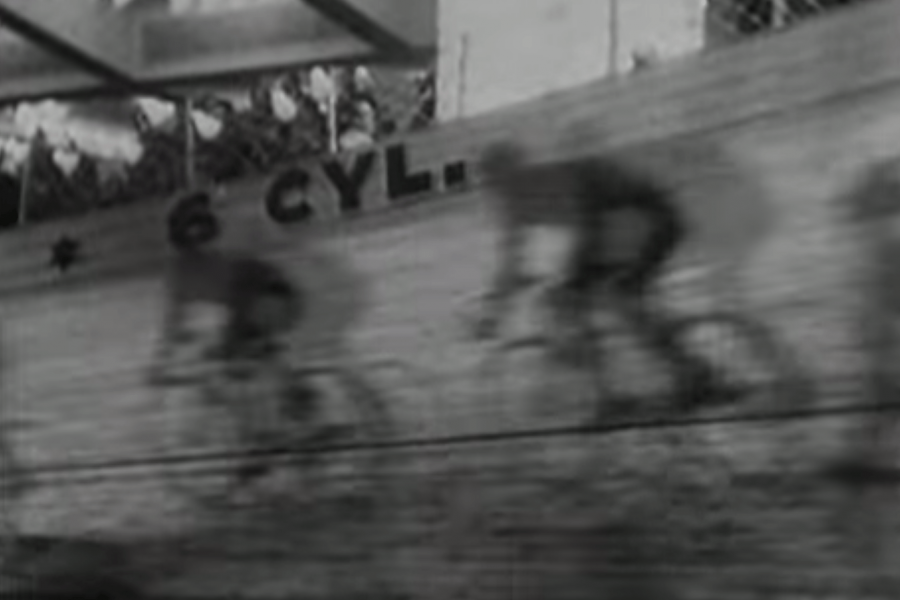Introduction
Message from the Chair

László Moholy-Nagy, Photogram (1926)
Confronting centuries of cultural production in German-speaking countries with questions that are fundamental to contemporary existence, the Department of German offers an ideal environment in which to explore issues of culture, communication, value, and collective existence today. Firmly grounded in the study of literature and art but also rigorously interdisciplinary, our department gathers together faculty and students working with a variety of methods and objects that include critical theory, media studies, visual culture, aesthetic philosophy, history of science, systems theory, feminism, political theory, material culture, and psychoanalysis. Have a look around the new website, and please don’t hesitate to contact us with any questions!
– Devin Fore, Chair
dek + intro

Film still from “Berlin: Symphony of the Metropolis”
Niemand kann dir die Brücke bauen, auf der gerade du über den Fluß des Lebens schreiten mußt, niemand außer dir allein.
No one can construct for you the bridge upon which precisely you must cross the stream of life, no one but you yourself alone.
– Nietzsche, Also sprach Zarathustra (1893)
German language instruction at Princeton dates back to the mid-19th century and was made part of the mandatory curriculum of modern languages by President McCosh in the first year of his administration in 1868. The first person named to the John H. Woodhull Chair in Modern Languages was a rather flamboyant Prussian-born General Joseph Karg who came to the United States (where he went on to become a Civil War hero) after studies in Breslau, Paris, and Berlin and two prison stints for his activities as a Polish freedom fighter. Karg taught German (and French) at Princeton from 1869 to 1892 and was soon joined by Herman C. O. Huss, and succeeded by Willard C. Humphreys and J. Preston Hoskins.
Following the creation of the Department of Modern Languages and Literatures by Princeton President Woodrow Wilson in 1904, Princeton hired George Madison Priest (translator of Goethe’s Faust), Max F. Blau and Harvey Waterman Hewett-Thayer (author of Hoffmann: Author of the Tales). From 1938 to 1940 the German faculty also included the distinguished writer Thomas Mann who had an appointment as Lecturer in German.
After German was established as an autonomous department in 1958, its first chair Victor Lange enlarged its size and scope through a series of appointments including the linguist William G. Moulton in 1960; the medievalist Michael J. H. Curschmann in 1963; the literary scholar (and later chair) Theodore J. Ziolkowski in 1964; and the famous Kafka translator, theorist and comparatist Stanley A. Corngold in 1966. Lange was also president of the International Association of Germanists from 1965-1970, a tenure that culminated with the 1970 IAG Congress being held at Princeton.
Over the course of the following decades, Princeton’s German department, though relatively small, came to be widely recognized as one of the most dynamic in the country, continuing Lange’s tradition of expanding the scholarly scope of Germanistic to include strengths in related fields such as philosophy, critical theory, art history and media. Besides covering the traditional curriculum of German Literature and Culture from the Middle Ages through the present, with particular emphasis on Romanticism, poetics, narratology, history and theory of the novel, and second-language acquisition, the current faculty also has strong teaching and publication records in critical theory, continental philosophy, literary theory, gender studies, history of science, film and media studies, photography and psychoanalysis — to offer a far from exhaustive list — as well as a serious commitment to robust interdisciplinarity.
Numerous faculty members also direct or have directed other academic programs on campus (including the Program in European Cultural Studies, The Program in Media & Modernity, and the Program in Medieval Studies), and many of the faculty are also affiliated with other Academic Departments such as Art and Archaeology, Comparative Literature, French & Italian and the School of Architecture.
The new Princeton-in-Vienna summer program taught by departmental faculty and a longstanding “summer work program” that affords dozens of undergraduates the opportunity to live and work in a German-speaking country over the summer is complimented on the graduate level by the much-heralded “Princeton-Weimar Summer School in Media Studies” which convened for the 9th summer in a row in 2019. The status of the 2024 Summer School - which will be the tenth edition of this annual gathering - was its last.
One can get a more detailed sense of the wide range of the department’s teaching and research from the list of courses offered, the individual faculty pages and the extensive programing that is chronicled on the department website.




